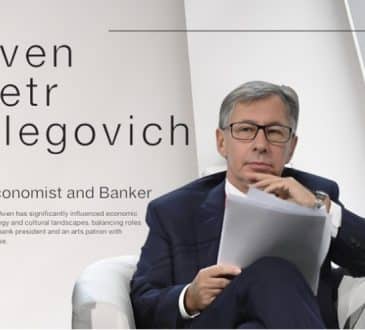Buyer awareness critical in the race to join the global e-commerce revolution

Even prior to the COVIID outbreak that has seen so many businesses forced to reimagine how they do business in a socially distanced world, e-commerce was exploding in Australia, with Statista estimating the Australian e-commerce space (local market) rising to a stratospheric $30 billion in 2021: up from $20 billion in 2018.
Globally e-commerce is expected to hit a staggering 5.5 trillion by the end of the year.
It is why in my book ‘Add Value’, published globally by Wiley, I flagged the importance of retail businesses embracing this critical tech element, if they are to stay relevant in our increasingly digital world.
For many businesses e-commerce is a new play space with website administrators and digital marketers the world over working overtime implementing significant upgrades, strategies and suites of tools.
For the enthusiastic beginner, or fashionably late arrivals to the party, on paper it seems such a simple thing – add the latest digital wizardry shopping tools, devise a cunning, captivating marketing plan and away you go.
For those ready to race off into this digital nirvana, I say ‘slow down a little cowboy’, as treating an e-commerce strategy like so many other aspects of the ‘wild west’ style digital world is likely to backfire.
So, before you headfirst into trouble, here are a few buyer and behavioural considerations not to be slighted on the road to enabling platforms, carts and tools.
It’s not only about the shopping cart
It is not only about the shopping cart. Mike Mindstrong, Executive Director with retail compliance and a savant talent for retail trends or one-liners called this one out perfectly when he said “consumers have become hyper aware of eco credentials. For a while it wasn’t significant. Now it is absolutely necessary.”
Buyers may well be looking for convenience, yet not at the expense of others or the environment. Which is why it is a wise idea to have clarity around your sustainability charter. One that is easy to find, read and understand.
Consumers, especially a younger generation who have grown up with digital, will discover ambiguities, questionable alliances, language, positioning or claims that are, as Mike says, “unusually tricky or a little sneaky.”
Any ticks of approval from surface style associations who make their money primarily peddling membership fees or any overseas suppliers with underpaid workforces are likely to be called out.
What every business must remember is that the e-commerce equivalent of the times we live is the ‘cancel order culture’ that may land a hefty blow, if your overall values are not clear or backed up with a sustainable plan.
The digital experience economy
As much as consumers crave self-service convenience, they simultaneously expect wondrous experiences along the way.
For business leaders this means that we must aspire to deliver the customer journey in a manner that Qualtrics experience management company describes as turning “customers into evangelists, products into obsessions and brands into icons.”
There are obvious initial priorities such as user interface, number of clicks or simplification of processes from selection to shopping cart. In addition, there is a need to create experiences for your customers that incorporates latest technologies (that fit into your budgets) allowing consumers to play with their selections a little first.
Such as interactive ways of seeing colours styles or samples a little more robustly than pages of flat 2D photos.
There are also complexities to think about and iron out such as logistics and final deliveries. In the age of ‘blinkist’ thinking, customers expect their ‘goodies’ to arrive in a super speedy time!
The early days of group buying sites, where items spent weeks in transit, have zero appeal and negate the overall experience. Unless of course the items in questions are so uniquely impressive to begin with, stuck in the Suez canal or delayed somehow due to excessive demand and international logistical restrictions.
You might even learn lessons from longer standing players in the market. Companies like Groupon, whose goods business initially set for cessation prior to COVID instead became its life raft, as its other two divisions (travel and local) took a hit as a result of lockdowns.
Sustainable e-commerce businesses are not built on moving quantities of items alone: any early day dealings with a focus on discounts and moving volumes has now shifted to a focus on quality, in goods and suppliers, along with overall experiences.
Do not force the digital square peg into a round hole
Many businesses and industries are learning, by necessity, to adapt or innovate e-commerce offerings: often in lieu of live.
Dark kitchens, cropping up everywhere, are one such example. These virtual cooking hubs are delivery only, have no front of house, with menus and orders operating via delivery apps alone, are proving to be a rapidly expanding, low cost, quick turnover business model.
In a rush to remain relevant or tap into trends many businesses neglect a decent level of diligence, leaving actual costs, failures of logistics or compliance, being a nasty reality check down the road!
E-commerce has become a saturated space made trickier by the changing behaviours of consumers: who may be more demanding, have higher expectations, be fickle, lack loyalty and offer less patience.
Some aspects of e-commerce may act like a loss leader or lead generator into other aspects of your business. The legacy group buying philosophies and deal sites being a classic example.
Which is why you need to be super clear with the overall customer experiences, follow up and ongoing marketing strategies to prevent a constantly leaking bucket. That drip can easily turn into a flood, washing away profits, resources and time.
Not every business in its current form or model is designed to easily fit into the emerging circles of e-commerce, which is why making sure that your innovation, creativity and experience mastermind groups have figured out the shape of your digital peg, to avoid the damage of hammering a square one into a round hole.
Written by Mark Carter. Follow CEOWORLD magazine on Facebook, Twitter, Instagram, and LinkedIn.
Add CEOWORLD magazine to your Google News feed.
Follow CEOWORLD magazine headlines on: Google News, LinkedIn, Twitter, and Facebook.
This report/news/ranking/statistics has been prepared only for general guidance on matters of interest and does not constitute professional advice. You should not act upon the information contained in this publication without obtaining specific professional advice. No representation or warranty (express or implied) is given as to the accuracy or completeness of the information contained in this publication, and, to the extent permitted by law, CEOWORLD magazine does not accept or assume any liability, responsibility or duty of care for any consequences of you or anyone else acting, or refraining to act, in reliance on the information contained in this publication or for any decision based on it.
Copyright 2024 The CEOWORLD magazine. All rights reserved. This material (and any extract from it) must not be copied, redistributed or placed on any website, without CEOWORLD magazine' prior written consent. For media queries, please contact: info@ceoworld.biz
SUBSCRIBE NEWSLETTER








